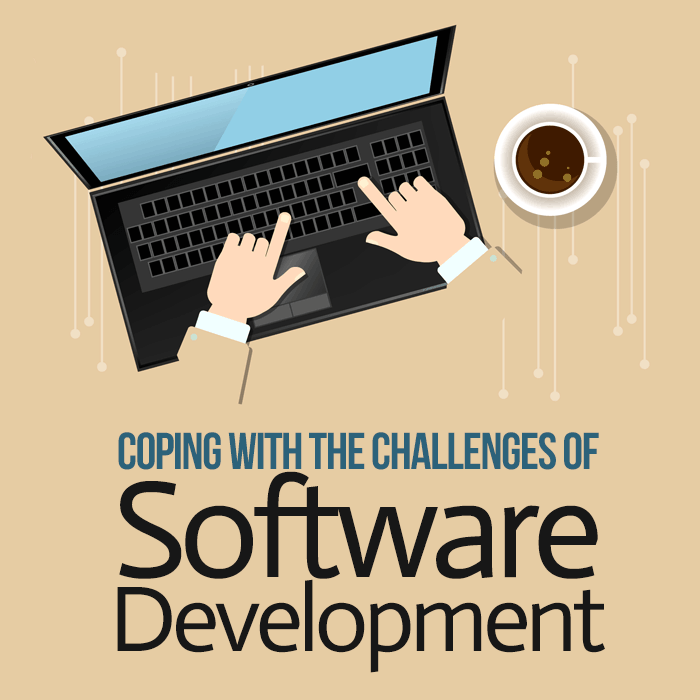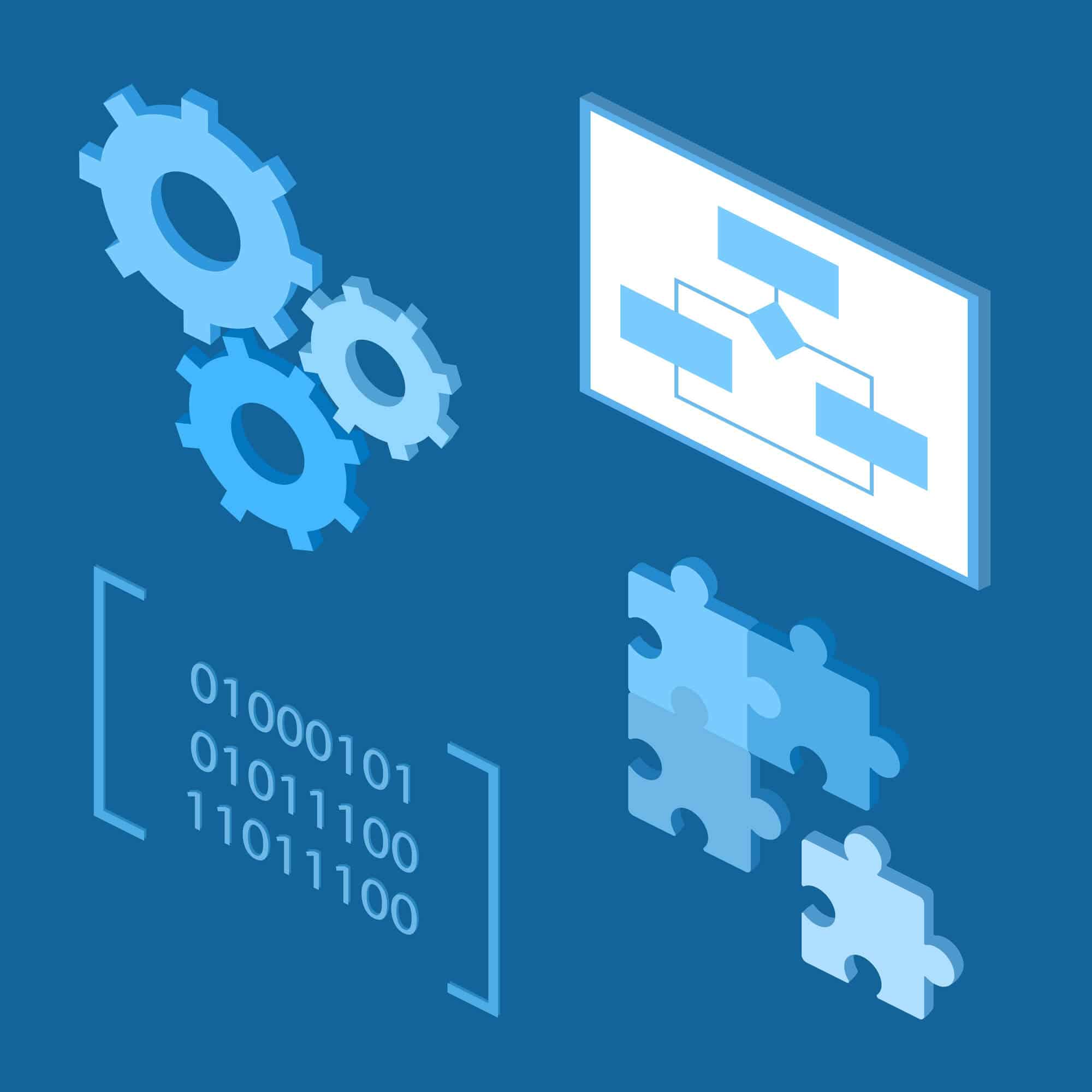 The Information Technology (IT) sector is arguably the fastest growing and most in-demand industry, as technology is now a vital component of modern life and a significant driving force behind the global economy. The more that is accomplished by technological solutions, the higher the expectations become as people create more and more requirements.
The Information Technology (IT) sector is arguably the fastest growing and most in-demand industry, as technology is now a vital component of modern life and a significant driving force behind the global economy. The more that is accomplished by technological solutions, the higher the expectations become as people create more and more requirements.
Software development is an integral part of an industry that is vast and complex. While it is essential for any IT professional to have some fundamental knowledge of how everything works together within a system, it is not a requirement to have deep knowledge of every facet. Even within software development, the fundamentals of programming may be the same, but the actual details differ based on the development tools used and the requirements of a system.
Because of the complexity of the IT industry, programmers tend to specialize and establish their careers in specific areas. This article is based on experiences in the business software applications domain, but some of these challenges and solutions are applicable to other disciplines within IT.
Software applications development is without a doubt an intellectual process that requires a solid understanding of the basics of computing and their application in the development of technological solutions to real-life problems. Having a strong foundation such as a degree in computing is essential, as it instills a base knowledge that can be further developed as relevant for any specific chosen discipline.
Contrary to popular belief, a person does not need to be super nerdy to make it as a software developer, but it is absolutely necessary for them to be passionate and willing to put in the effort.
Technical knowledge can be acquired academically, but the proficiencies necessary for successful professional software development are developed over time through learning and experience. A problem-solving mindset and the discipline to establish and follow systematic approaches to problem resolution are vital factors to success.
This article is contrived from my personal experiences in the IT industry as a software developer and the realization that more needs to be done to attract people to and keep developers in this industry. My aim is to convey the challenges faced in software development and how, by adopting some simple strategies, the challenges can be overcome to enjoy a rewarding career.
Before we look at coping mechanisms, it is important to have a good understanding of the challenges of software development as a vocation.
The Challenges of Software Development
Software systems are complex and intangible. Software professionals design and develop their product conceptually. Typically, the architecture of a software system consists of several programs and the relations among the different program components. These programs are precisely defined and organized at different layers of the system structure for effective and accurate information flow.
Additionally, most systems are governed by industry-specific and security standards that have to be incorporated into the design. An application may also have to interact with other external systems, which requires it to be compliant with the data formats and security requirements of the other systems. The size of a system and the actual problem being resolved also attribute to the system’s complexity.
As a developer, you need to understand the system as a whole and have a good understanding of where the software that you develop fits.
Programs are written within the restrictions of a programming language or development framework. There are numerous development tools that can be used to develop software applications, and the right tool depends on the hardware, operating system, and software requirements. The challenge for software developers is to have a good understanding of the different options available for the systems that they develop in order to select the most appropriate option.
Another challenge for the software industry is the rapid advancements in technology that are continually driving changes in software requirements and designs. An application may be good today, but it’s only a matter of time before its underlying technology becomes obsolete and it needs to be upgraded. Because of this constant movement, software applications are volatile and have to be designed with ease of change in mind.
The user friendliness of an application is another problem that software professionals have to contend with. End users are the main stakeholders of a software application and they determine the success or failure of a system. Users are generally not concerned with the intricate details of a solution, but really care about how easy it is for them to use.
No matter how perfectly the software solution addresses a given problem, if the end users find it difficult to use, they are likely to reject it. The challenge for software developers is to design a solution that not only meets functional requirements, but also has a user-friendly interface that gives the users a positive experience.
In his book Code Complete, Steve McConnell elaborates more on these and other factors that make software construction complex.
Strategies for Coping With Software Development
Like any established discipline, software engineers have, over time, developed mechanisms to make the job manageable and even look so easy and elegant that it appeals to a wider audience. Some of the strategies are well documented in software engineering literature, but the actual application, when faced with real-life problems and imminent deadlines, can be easily neglected.
I have picked up several approaches to facing the challenges of software development, either from mentors or from corporate cultures in which I’ve worked. I intentionally adopted these practices, for my personal benefit and professional maturity. With deliberate thought, you can implement each of these practices as well.
1. Keep Things Simple
Software systems are complex. The most effective way to understand and solve a complex problem is by simplifying it. This is achieved by starting with a holistic approach to a problem and recursively breaking it down until you get to its simplest sub-systems without losing the intended objectives. Then you should keep the solution simple.
This design concept is explained in Chapter 5 of McConnell’s book. It is rooted in the divide and conquer theory where any complex problem can be decomposed into its simplest parts that can be solved using simple solutions. This ideology also means that when faced with the different implementation options, you intentionally choose the simplest applicable option.
You can learn how to keep things simple. It is an objective to actively pursue and to be intentionally applied in order to develop elegant solutions to complex problems. Simple solutions are easier to develop and also guarantee that future changes are not a nightmare to implement.
The goal for software developers should be to use the simplest approach to meet operational requirements without compromising on operational requirements, efficiency, and extensibility. The following are some practical steps toward the simplicity objective:
Do not do more than is necessary.
When writing code, write the minimum that is necessary to get the job done—nothing less, nothing more.
The larger the program is, the more complex it is likely to be in terms of understanding and maintenance. If the solution to be implemented requires code logic that already exists, avoid duplication and instead reuse existing code.
Consequently, should that logic be required to change for whatever reason, there would be only one place to change it, making maintenance easier. New code should also be well factored so it is reusable when needs arise.
Follow established development standards.
It is most likely that a program file will be written and maintained by different developers during the course of its lifetime. Every developer will have an opinion on how code should be written and if each followed their own style, then the code would be extremely difficult to read and debug.
To keep the process simple, stop worrying about your personal style of writing code. Instead, know the organization’s established coding standard and stick to it. If all developers would follow the same standard, we would not have to deal with the unnecessary complexity brought about by unreadable code.
Get feedback from peers.
Peer reviews for quality control should also be used to explicitly check for solution simplicity. If another developer is finding it difficult to follow through your code logic, then it may not be simple enough. As a developer, you need to be open to receiving feedback from peers; you can also suggest simpler options when reviewing others’ work.
Test your work as you go.
Elegance and quality should go hand in hand. Quality assurance in programming should not be treated as an afterthought or left to be the last task taken after coding hundreds of lines of code.
It is much simpler to develop your solution in incremental stages and unit testing for code coverage as you go. This approach will make sure every line of code is behaving as expected when the different components are interconnected. It would be unnecessarily daunting to try and test everything at once and it is most likely that code coverage testing would not be completed.
2. Invest in Domain/Functional Knowledge
Software application development is also known as solution development. With that awareness, any problem can be solved more efficiently if it is well understood.
Domain knowledge may not be a requirement for a software developer, but it is beneficial for the developer to understand the environment and process they have to automate without having to totally rely on business analysts.
With software development being essentially the transformation of domain knowledge into lines of code, it benefits software developers to complement their technical skills with the functional knowledge of the system they develop and maintain.
As highlighted in Chapter 4 of John Sonmez’s book Soft Skills, software developers don’t just write code; they spend a considerable amount of time dealing with people.
Having domain knowledge means you can contribute on a conceptual level and give insights into clarifying requirements based on your understanding of the business or process objective. This advantage is especially true when you can leverage your technical skills to guide stakeholders in terms of what can be achieved.
It also includes an understanding of recurring problems and known solutions within the domain. Such knowledge comes with experience and with that, problems are resolved more efficiently and effectively because both the problem and the solution are well known.
Taking the initiative to learn relevant domains is a personal responsibility that empowers you as a developer to do your job more elegantly and efficiently. It qualifies you to understand the environment that you work in, including stakeholder needs.
It requires a personal commitment to seek relevant information from various sources, including system literature and operational manuals; you may even need to spend time with end users to get a good understanding of how they use the system to support their day-to-day operations.
Personal fulfillment comes with knowing how your work is contributing to the purpose of an organization. When you have a good understanding and passion for the domain you work in, you become more motivated as a software developer knowing the difference that your contribution makes. In addition to making solution design and development easier, domain knowledge also paves the way for a developer's professional advancement, so it is a worthwhile personal investment.
3. Keep Abreast of Changing Technology
Technological advancement is an inescapable fact for the software industry, and the challenge for software developers is to keep up with technology trends and remain relevant and productive.
Programming languages, frameworks, and methodologies, among other things, have changed so much compared to 10 years ago, and they are still evolving. Software developers need to stay open to the new trends, learn the new ways, and stay on the edge of technology to be effectively productive. The following are some practical steps that you can take to stay relevant in this dynamic industry:
Take personal responsibility for continuous learning.
Knowledge and skills are the key assets for software development. Therefore, being diligent and intentional about mastering some skill sets is certainly critical for professional advancement and relevance in this industry.
Take personal responsibility for your learning by investing time and effort, even outside of work, to understand the concepts behind the emerging technologies and what problems they are trying to solve. This understanding will help you to appreciate and embrace the new trends and the enhanced productivity they are designed to bring to your work.
According to John Sonmez (2015), “The most successful developers don’t arrive at success by chance. They have a goal in mind and they create a solid and well-thought-out plan to achieve that goal.”
Make your learning purposeful and focused.
With the rate at which technology is changing, it would be daunting to try and keep up with all the new trends. In order to stay motivated, the key is to be smartly selective about the new things to learn and not miss any of the important stuff that is relevant for your work.
Focus your learning efforts based on what is applicable to your work or what you have a strong interest in. That way, it is easier to establish and accomplish personal objectives and stay ahead of professional expectations.
Establish your learning resources.
Once you know the areas that you need to focus on, you need to establish how and where you learn. There are numerous resources out there, depending on the technologies you use, the industry you work in, or the type of software you develop. It is important to identify the resources that coincide with your own learning objectives and style, and use them in a way that benefits you.
4. Take Care of Your Well-Being
Software development as a career can be very fulfilling and rewarding, but it can also be stressful. It is mentally demanding and requires a lot of focus to deal with the various complexities that come with the trade.
In addition, trying to keep up with the pace of changing technology and spending long hours sitting in front of the computer can take a toll on the body and mind, leading to varying levels of stress and exhaustion for software developers.
Tom DeMarco and Timothy Lister (1999) have explored various human capital management techniques and how to keep people motivated on software projects. I have picked up some of the concepts as reflected in this section.
As a software developer, it is true that you are only as productive as your brain and body is healthy. It is therefore essential that you are purposeful in making sure that your needs are met, both physically and mentally. The following are some things that we can do maintain a healthy mind and body:
Maintain a healthy diet and exercise regularly.
When it comes to physical fitness, unfortunately, there is no substitute for exercise. The benefits of regularly engaging in some form of physical activity go hand in hand with productivity in the workplace.
Exercising releases endorphins that make you feel good, boosts fitness levels, helps strengthen core muscles (that may be dormant from sitting in a chair all day), improves metabolism and immunity, and gives you confidence. These benefits are not to be understated, as they can mean the difference between just getting by and forging a successful career in software development.
A change in mentality provided through exercise can yield better and more innovative results. It is therefore important to have a personal fitness objective and engage in some activity that you can consistently incorporate into your routine. You’ll see the difference it makes to your productivity and general motivation at work.
A healthy body houses a healthy mind, and it has also been scientifically proven that eating a balanced diet has a positive impact on your mental health. When we spend long hours behind the computer, solving complex problems and working against tight deadlines, it is easy to neglect our need to eat well regularly. When your body is well nourished, you are less likely to succumb to some diseases or get easily fatigued.
Failing to strike a balance between your work and health can be detrimental to your well-being and productivity at work. Choosing to tailor your lifestyle to make sure you eat well and exercise regularly is a personal conscious choice that will keep you going strong in a mentally demanding job.
Do something that you enjoy.
Technology can easily take over your life as you try to remain relevant and stay on the edge of productivity. It is vital to take some time out to do something that you enjoy. Have some hobbies and take part in activities that have nothing to do with technology. Be intentional about setting aside time to do something that you enjoy and that makes you feel good. This time doing fun activities will be rewarding for your emotional and mental health, and will definitely contribute to your productivity.
It is also equally important to take time off from work. With software development, you need time away to reset mentally so you are fully refreshed when you return to work. Time off also allows you to rekindle personal relationships, which helps in establishing a work-life balance. This vacation time is essential for personal fulfillment.
Finally, when you are not at work, it is essential that you switch off from work mode and be available for your family and other relations. It is not uncommon for people to take work home sometimes, but if it is the norm, then you need to reevaluate, as always being “on” is detrimental to your personal well-being and productivity in the long run.
Thoughtful Coping Means a Successful Career
Software development as a career may not be for everybody, but it is not as difficult as many people seem to believe. Stigmata surrounding the profession act as barriers for many people to understand how gratifying and accessible it can be as a career.
The complexities and demands surrounding software systems are very real. The stress and exhaustion levels vary, depending on the individual’s ability to cope. Different people have different mechanisms for coping; there is no silver bullet.
The key is to establish what works for you and then be purposeful about implementing it so that you enjoy the fulfillment that comes with the career. It is not necessary to be super intelligent—it’s about being intentional in doing the things that help you cope.




